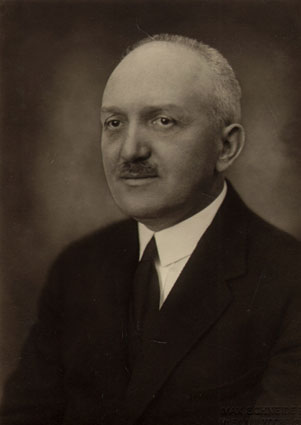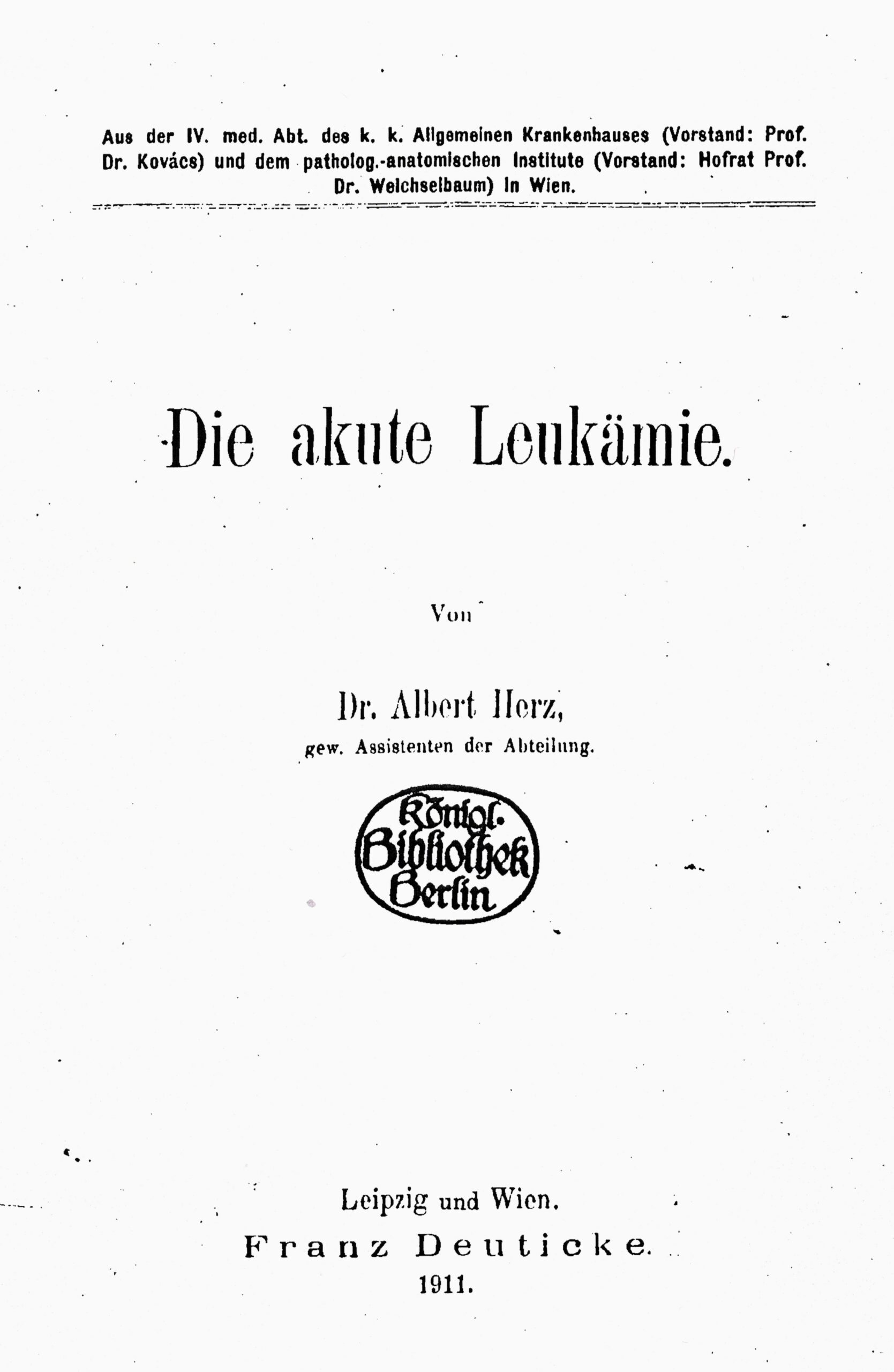Doz. Dr. med. Albert Herz
- Freudenthal/Bruntál, formerly Austrian Silesia, Czech Republic, 02.12.1876
- Amsterdam, 05.09.1950
- Member since 1925
- Deported in 1938
- Vienna
- Specialist in internal medicine and haematologist
Education and Places of Work
Albert Herz studied medicine at the University of Vienna, where he received his doctorate in 1901. He was an intern at the I. Medical University Clinic Vienna with Hermann Nothnagel and later with Friedrich Kovacs at the IV. Medical Clinic of the Vienna General Hospital. He habilitated in internal medicine at the University of Vienna in 1913. His main areas of activity were related to infectious and haematological diseases.
He was dismissed from his post on 22 April 1938 and his venia legendi was revoked.
Escape to the Netherlands in 1938
Albert Herz fled to Amsterdam in the Netherlands in 1938.
He was tracked down by security forces in January 1943. He was briefly imprisoned in the “police transit camp for Jews” Vught/ concentration camp Herzogenbusch on 26 and 27 January 1943, and was transferred to the Westerbork camp for one day.
Deportation to the Theresienstadt/Terezín ghetto
Albert Herz and his wife Irene Herz-Adler were deported to the Theresienstadt/Terezín ghetto on 21 April 1943 (“Transport No.” 170-XXIV/1.).
At Theresienstadt, Herz was active in the scientific committee of the ghetto health service and participated in further medical training. Alongside Hermann Strauss, Hans Hirschfeld, and Gertrud Adler, Albert Herz gave lectures and talks on leukaemia and, most recently on 15 July 1944, on “Änderungen der Leukocytenzahl als differentialdiagnostisches und prognostisches Hilfsmittel bei Allgemeinerkrankungen“.
Their son Stefan Herz, born on 20 March 1918 in Vienna, was deported from Amsterdam to the Sobibor extermination camp, where he was murdered on 21 May 1943. Their daughter Liselotte Herz, born on 3 June 1914, was able to flee to New York in the USA via Rotterdam in July 1938. She died in the Bronx, New York in March 1941 at the age of 26.
Albert Herz and his wife survived the Theresienstadt ghetto and were able to leave on 13 June 1945. They returned to Amsterdam, where Albert Herz died on 5 September 1950 at the age of 74.

